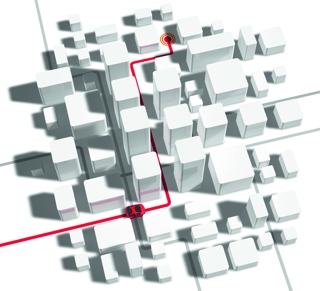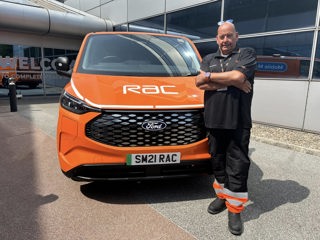The entire fleet decision-making unit is being encouraged to come together to discuss and debate fleet policy and company priorities as part of a software mobility system being launched by ALD.
The Mobility Experience Centre (MEC) is a new purpose-built facility at ALD’s head office in Bristol which uses software developed by its counterparts in the Netherlands.
ALD claims it is “a different way to think about fleet” strategy centred on considering the entire employee base and how they travel to and from work, not just the company fleet.
The software overlays a company’s priorities with its actual fleet policy. It enables an organisation to compare its position with peers in the same industry and also allows them to make alterations to policy to better fit their priorities.
Those changes can then be analysed for their effect on employee satisfaction, costs and the environment based on algorithms designed in the Netherlands.
The MEC process begins by focusing on nine fleet management topics and asks each key stakeholder, such as fleet manager, finance, HR and procurement, for their views on fleet policy.
“We ask what’s important to them, for example, cost, company image and remuneration, and their responses create a sketch graph,” Sarah Gray, ALD AutoSolutions consultant, told Fleet News during this month’s Fleet Management Live (FML) show at Birmingham NEC.
“We then put in their mobility strategy, for example fuel supply, manufacturer policy, contract terms, CO2 policy and replacement policy, and we include non-company car driver, such as home-working plans. We overlay the two graphs and this gives them a view of their priorities versus their actual policy to see where the gaps are.” As an example, remuneration might be viewed as important, but the fleet policy might fall short. The system will then offer suggestions on how to improve that area, either by introducing new policies or by removing existing ones.
Another area considers mobility options and suggests introducing rewards for low CO2 cars, low accident rates and economic driving. It demonstrates how spending money can save money based on real-life fleet examples.
“The system outlines how they need to change their current policy and our consultancy team can then help them to achieve it,” Gray said. “This is a different way to look at policy based on the views of all decision-makers. We are facilitating the process, not selling.”
She adds: “It creates substantial discussion between the key stakeholders.”
The first ALD customers have already gone through the process at the MEC, which takes between three and four hours to complete.
The system is available only for cars at present, although ALD is in the process of developing software for van fleets.























Login to comment
Comments
No comments have been made yet.